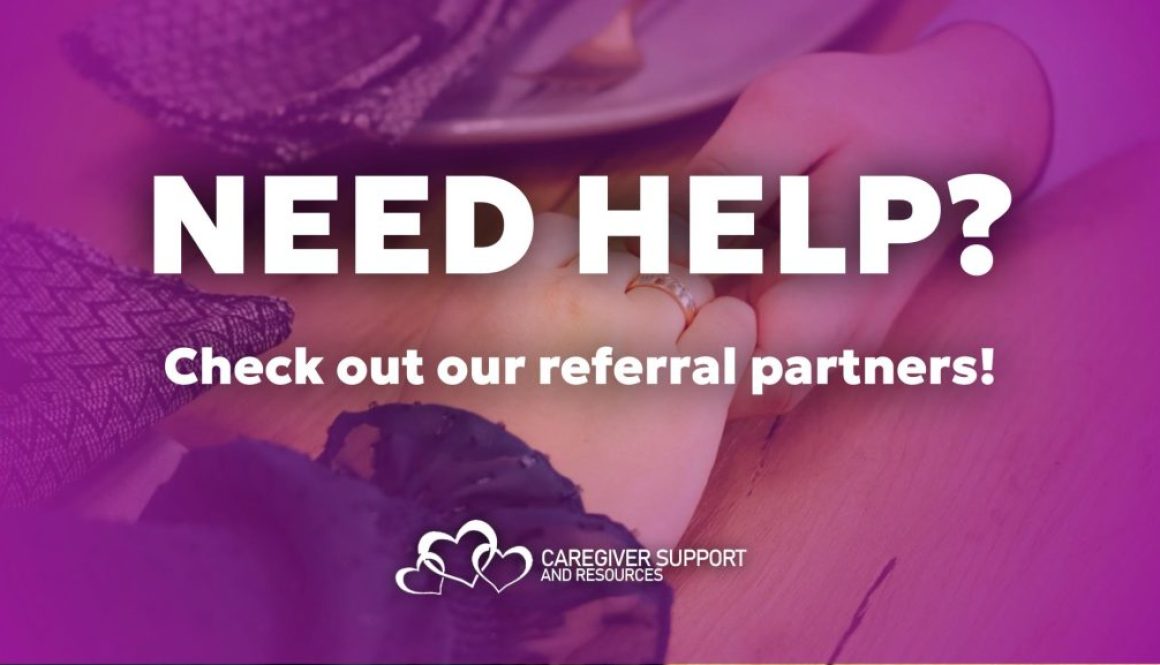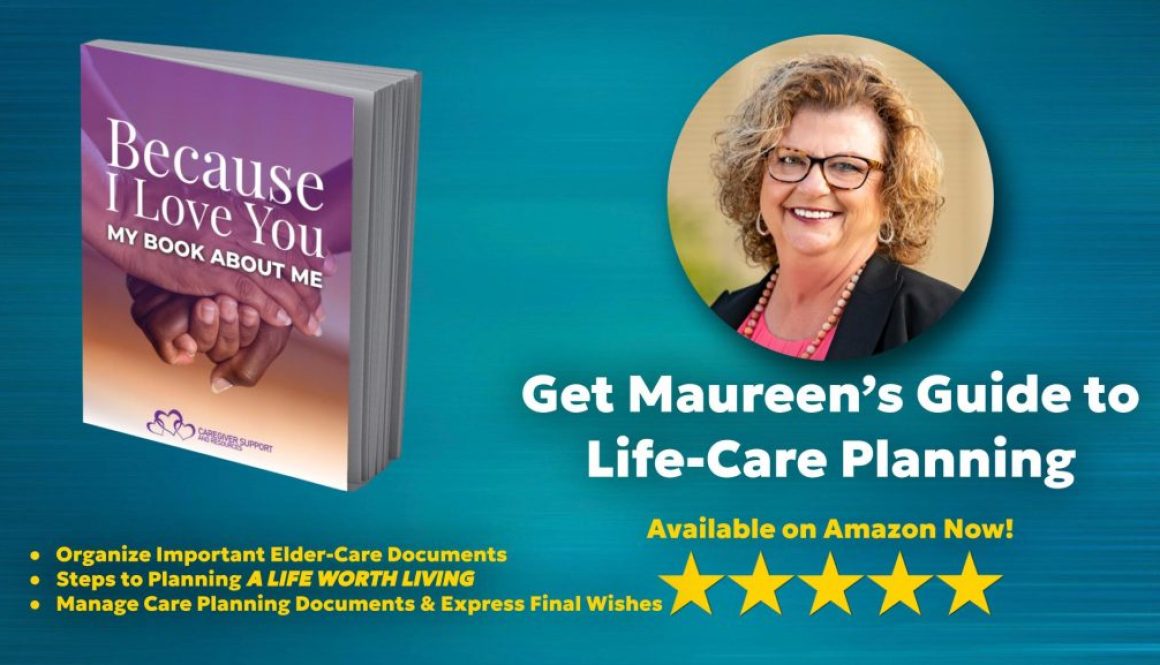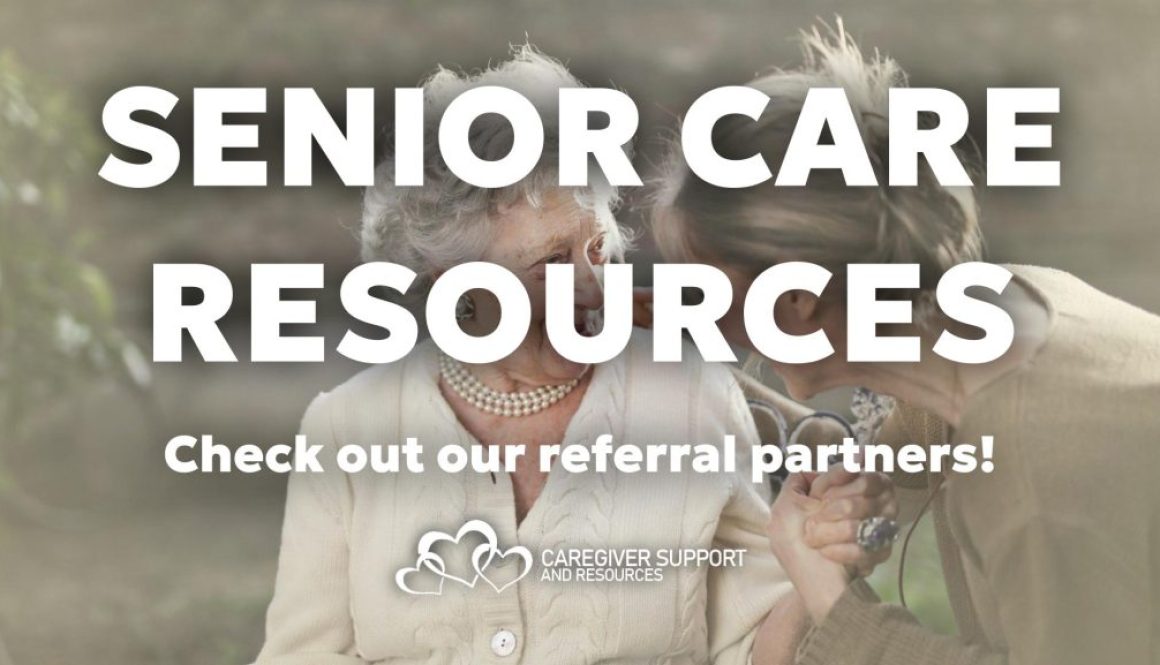In nearly three decades as a professional life-care planner and Board-certified Patient Advocate, I’ve learned the importance of a strong circle of support. Professional elder care services, for so many wonderful people I serve, play essential roles in that support system.
I’ve spent a great deal of time the last year building a comprehensive referral network of elder care services professionals in the Clearwater, FL area. From life-care planners like myself to estate attorneys to meal delivery services, we’re all important to the continuum of care.
(Visit our professional referral services page here.)
ALL of our clients stand to benefit from easy access to this meticulously curated resource of services. As professionals, we try our hardest to point individuals and care-partner teams in the right direction when we can’t provide what they need.
For years, many professional services around Clearwater existed in siloes, leaving many good people like you unaware of resources right in our own backyards.
Not anymore!
Check Out Our Elder Care Services Referral Network
I’ve dedicated my life to supporting the needs of elders and their caregivers. So I understand the complexities and emotional challenges that come with aging, life-care planning and dying with dignity. Our Clearwater, FL elder care services referral network is here to simplify this journey – from medical needs to end-of-life care – providing easy access in one central location to a wide range of essential services.
What Types of Professional Care Referral Partners Can We Connect You With?
Our referral network includes a variety of professionals who specialize in different aspects of life-care planning, health care, living transitions, and financial and legal considerations for aging individuals and their care-partner teams. Here’s a closer look at the services offered and the importance of each type of resource:
Estate Attorneys
Legal expertise is crucial for drafting wills, setting up trusts, and ensuring health care and financial directives are honored to the letter. Our elder care services referral network includes estate attorneys in the Clearwater, FL area who specialize in elder law, helping you navigate the complexities of estate planning, guardianship and leaving a financial legacy to future generations.
CPAs, Tax Experts & Accountants
Financial planning is a key component of long-term care – not only ensuring the skyrocketing costs of heath care are covered, but also that enough is left over for a life worth living. This elder care services referral network includes CPAs, tax experts, accountants and other financial professionals who can assist with tax planning, managing retirement accounts, and maximizing benefits and resources.
Home Care
In-home care services are essential for maintaining the comfort and independence of elders who prefer to stay in their own homes. Our network includes qualified home care providers in the Clearwater, FL area who provide both medical and non-medical support.
Music & Art Therapy
Creative therapies can significantly enhance the quality of life for aging individuals by promoting emotional well-being and cognitive function. We highly recommend music and art therapy – especially for our friends and loved ones with Alzheimer’s and other types of dementia. Our referral partners offer services that add some life, color and vibrancy to the aging process.
Palliative Care & Hospice Care
These services provide compassionate support for those with serious illnesses and life’s end stages, focusing on relief from symptoms and improving quality of life. And, yes, there is a difference between hospice and palliative care.
Our referral partners offer both palliative and hospice care services in and near Clearwater, FL to ensure comfort and dignity for the death transition.
Realtors
For seniors in general, transitioning to a new living arrangement can be challenging. Our elder care services referral network includes realtors who specialize in managing difficult housing sales and rental transactions. This is especially helpful as seniors move to senior living, assisted living and nursing care facilities.
Senior Move Managers
Moving is stressful at any age, but senior move managers provide specialized services to help our elder loved ones pack and settle into their new homes. Oftentimes, it’s necessary to downsize a lifetime’s worth of memories and possessions. Our senior move manager referral partners handle each step of the transition with compassion and grace.
In the end, we all deserve to keep the most cherished photos and mementos to make the next step feel like home.
Final Arrangements
Planning final arrangements is an important aspect of a life worth living. We each deserve to be remembered and honored on our own terms. Individuals and families often have very specific needs, wishes and religious/cultural requirements for “the final goodbye.”
Caregiver Support and Resources, LLC’s referral partners offer compassionate support in planning funerals, memorials and other end-of-life services – like living memorial services.
Transitional Services
Whether moving to assisted living or adapting to new health conditions, transitional services help individuals adjust to changes in their living situation and lifestyle. Perhaps a new health diagnosis requires dietary, medication or lifestyle changes to be able to live life to the fullest. Sometimes an abrupt move to an advanced nursing facility or end-of-life care requires assistance for everyone involved.
Our elder care services referral partners can help with each step of the journey.
Disease Specific Advocacy
Advocacy groups provide crucial support and resources for individuals living with specific diseases, helping them navigate medical care and connect with others facing similar challenges. Various health conditions often require distinct treatments and support systems, from coping with a terminal diagnosis or fighting to defeat a chronic disease.
Let us help you find the perfect resource that suits your particular condition.
Home Cleaning Services
Maintaining a clean and safe living environment is ideal for any stage of life, but especially for the safety of our aging loved ones. No one could blame them for having little energy for such activities – or for simply leaving them to someone more capable to enjoy their Golden Years.
Our network includes reliable senior housing cleaning services in Clearwater, FL that cater to specific needs.
Medic Alert System
Safety is a top priority. But sometimes it’s not feasible to have a member of the care-partner team on hand in case of a fall or other emergency. Medic alert systems ensure that help is available at the push of a button, providing peace of mind for both elders and their caregivers.
Handyman Services
In general, home maintenance can become difficult as we age. This, too, can pose significant safety issues. Elder loved ones who aren’t up to the task shouldn’t be on ladders changing light bulbs or fixing leaky faucets.
Our network includes handyman services to help with repairs and modifications to ensure your loved one’s home remains safe and accessible.
Meal Delivery
Proper nutrition is crucial for health and well-being. Once again, people aging in place – in good health or bad – may not be willing to (or capable of) preparing their own daily meals. Our referral partners offer meal delivery services that provide nutritious, home-cooked meals tailored to seniors’ dietary needs.
Transportation
Reliable transportation is essential for attending medical appointments, running errands and maintaining social connections. Elder loved ones who no longer drive, or drive sparingly, may need regular transportation to alleviate the burden on family and friends. Our elder care services referral network includes transportation to safely and cost-effectively get folks from A to B (and sometimes C).
Life-Care Planning: Essential Elder Care Services Referrals in Clearwater, FL
Life-care planning is an ongoing journey that involves much more than just addressing immediate medical needs. It requires a comprehensive approach that includes legal, financial, emotional and logistical support, ensuring that both elders and their care partners can lead fulfilling, dignified lives.
Our elder care services referral network in Clearwater, FL is built on the philosophy of providing a life worth living by connecting you to a diverse array of professional services tailored to meet all care needs.
How It Works
Connecting with these services is easy. Simply visit our referral network page, click the link and fill out the brief form. A representative from our partnering agency will be in touch to guide you through the process and connect you with the appropriate professional services. Rest assured, your information will not be used for marketing purposes.
Join Our Network
If you are a professional service provider and would like to join our referral network, please get in touch with me at maureen@caregiversupportandresources.com. Caregiver Support and Resources, LLC is always looking to expand our network to better serve the community.










